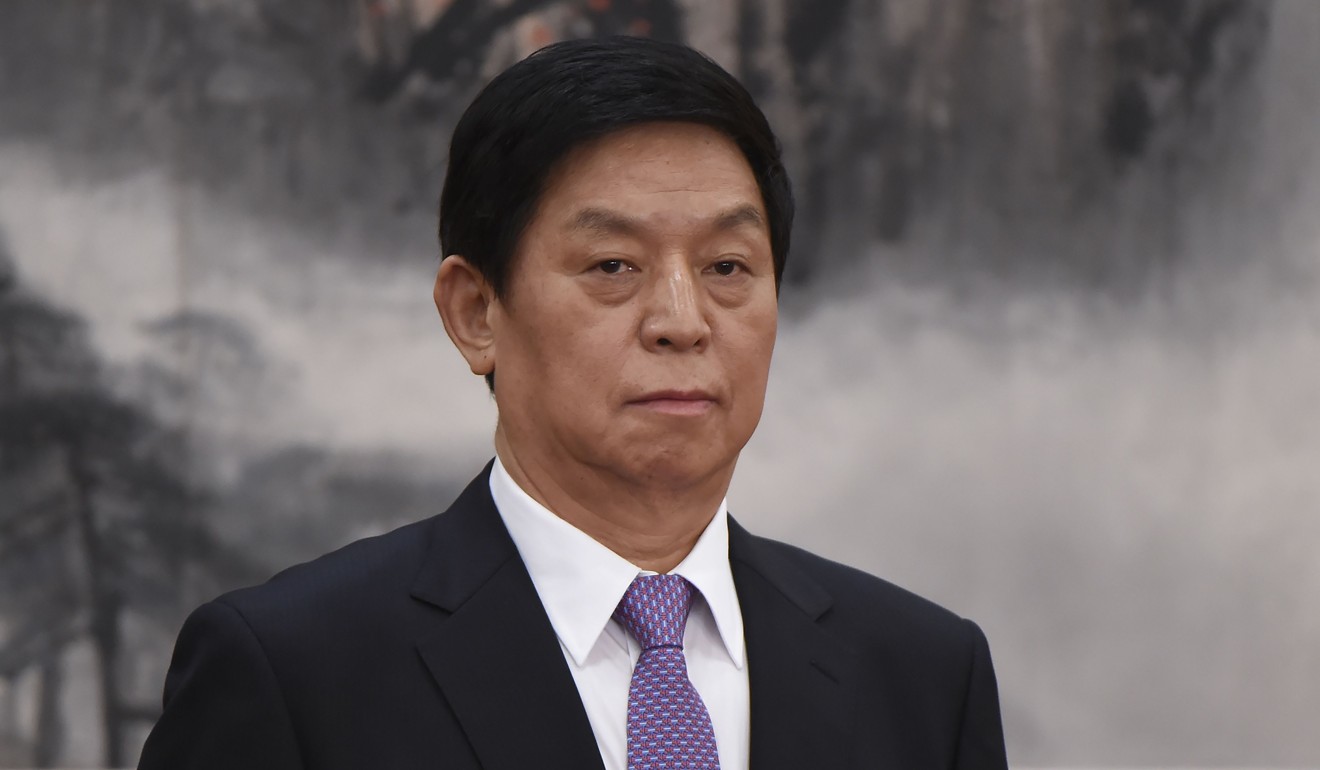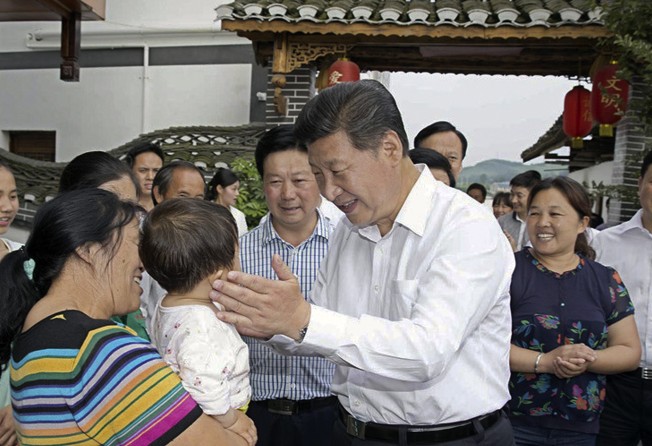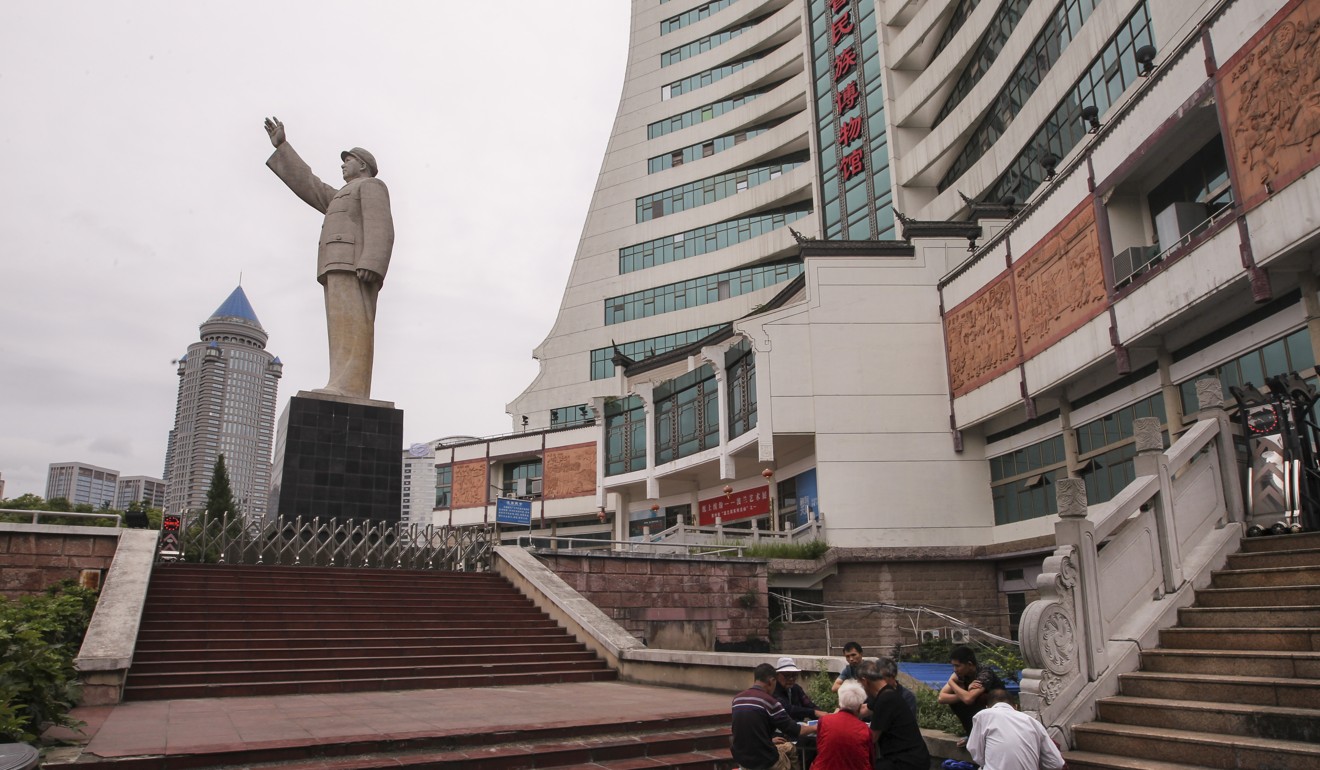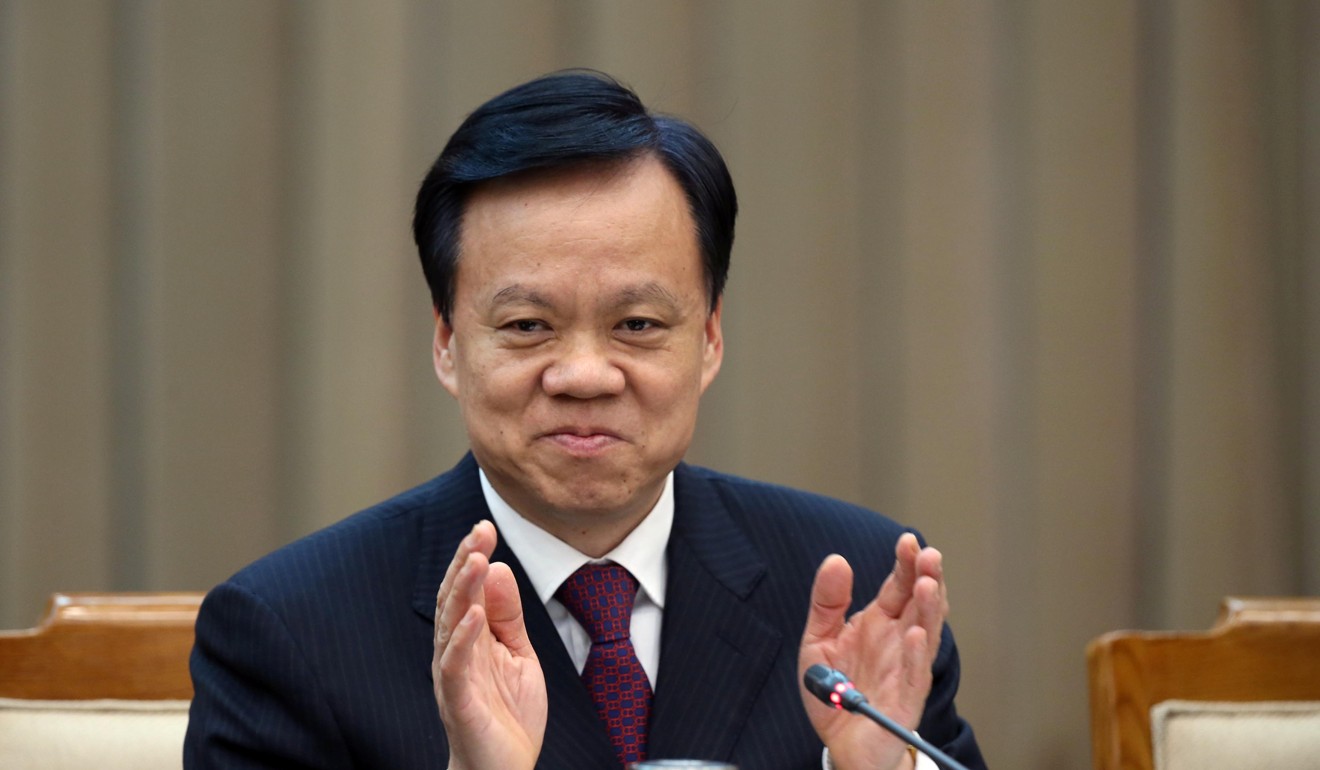
How a poor rural province became the promised land for China’s rising political stars
Guizhou has become a showcase for many of Xi Jinping’s policies and proved a fast track to the top of the country’s political ladder

A poverty-stricken province in southwestern China is becoming one of the surest routes to the top of the Communist Party under Xi Jinping.
In the eyes of many Chinese communists, the heavily rural province of Guizhou is taking on the status of what one analyst described as a “Holy Land”, serving as a showcase for the president’s achievements and a testing ground for some of the country’s most powerful men.
The highest-ranked Guizhou veteran is Li Zhanshu, a top aide to Xi who entered the party’s Politburo Standing Committee on Wednesday as one of the seven cadres set to rule China from the apex of power.
Li, considered one of Xi’s closest allies, was Guizhou party chief for two years before being transferred to Beijing in 2012 to head the party’s General Office.
Another former party chief, Chen Miner, is now one of the three youngest cadres in the new 25-member Politburo, who have a chance to become next-generation leaders.
Chen, who previously worked under Xi in the wealthier Zhejiang province, spent much of the general secretary’s first five-year term of office in Guizhou.

Chen served as Guizhou deputy party chief and then party chief, before being promoted to fill the role of party secretary in the megacity of Chongqing in July.
“Guizhou has the significance of a Holy Land,” said Wu Qiang, a Beijing-based political analyst. “It has become a [rung] on the political ladder. People have a consensus that cadres get promoted after getting something done there.”
Xi’s predecessor Hu Jintao also was Guizhou party boss for three years, from 1985. And while Xi never worked there, he attended the 19th party congress as a delegate from Guizhou.
Aside from the opening and closing sessions, the only public appearance Xi made at the congress was at a panel discussion on the region.
Sitting with the rest of the Guizhou delegation last week, Xi lectured them on poverty alleviation, grass-roots party building and the enforcement of party discipline – all priorities for his government.
And his conversations with delegates soon were picked up by the party’s propaganda apparatus, with state media highlighting the handful of lines Xi uttered that were unlike the usual bureaucratic talk.
“Expensive alcohol may not sell well,” Xi was quoted as saying to a village party secretary, who told the leader that locally produced baijiu was priced at 99 yuan (US$15) a bottle.
“Follow the market. Don’t lower the price to 30 yuan just because of what I said,” he was quoted as saying.

Wu said the province had been selected as a role model mainly because of its achievements in the battle to end poverty – another key Xi objective.
Guizhou’s government said more than seven million of the province’s 36 million inhabitants had been lifted above the poverty line between 2012 and 2016. It has pledged to do the same for another one million people this year.
Last year, Guizhou also recorded the second-highest growth rate among 31 provinces and municipalities, although it had one of the lowest GDP numbers.
“The province is poor and relatively small,” Wu said. “It is remote and has an ethnic-minority population. It is a place where officials’ accomplishments can be easily noticed.”
The administration led by Chen won plaudits for bringing non-traditional industries to the region.
During his stint there, the province encouraged tech giants Apple, Alibaba and Tencent to invest in data infrastructure as part of its plans to establish a “big data” hub. Alibaba owns the South China Morning Post.
Meanwhile, the world’s largest single-dish telescope, Fast, has been constructed in the province and recently announced its first discovery of two pulsars thousands of light years from Earth.

All these efforts have helped Guizhou, and its officials, stand out from other areas that are struggling to find the right path as the Chinese authorities try to shift away from a growth model driven by infrastructure and manufacturing.
Of the regions with a lower GDP than Guizhou, Gansu, Ningxia and Qinghai are still largely dependent on agriculture for income while Hainan faces an overheated housing market. Xinjiang and Tibet, on the other hand, are still grappling with serious ethnic tensions.
In June, Xi appointed Chen Gang – the former party boss of Guizhou’s capital, Guiyang, and an advocate for big data projects – to run Xiongan, a new economic zone near Beijing that will play a central role in his development plans.
Speaking to Guizhou delegates, Xi praised the province for cutting down on poverty, improving the environment and cultivating a “good political environment”.
“Guizhou’s achievement is an epitome of the great progress in the party and country since the 18th congress,” Xi said. “It proves from one perspective … the policies and plans set by the party centre are completely correct.”